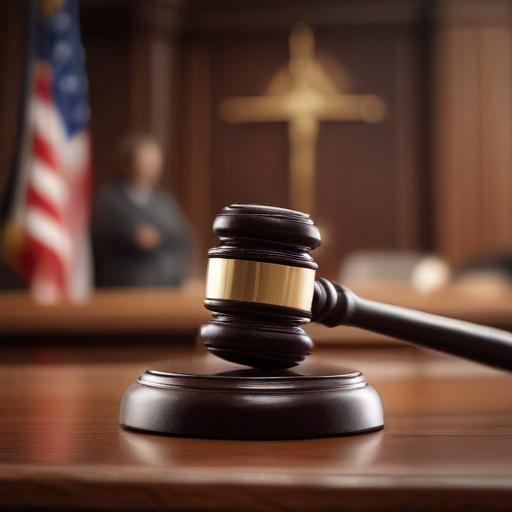In a Jacksonville courtroom, the ongoing trial of Hakeem Robinson took a notable turn as defense attorneys called two new witnesses on Wednesday, including a record producer and Robinson’s sister. The sister asserted that the individual depicted in a video shooting the victim at a strip mall is not her brother. However, the testimony drew attention when it was discovered that her statements were being livestreamed on Facebook, raising concerns about courtroom decorum. Judge Tatiana Salvador intervened, emphasizing that electronic devices are prohibited in the courtroom.
The state has been building a case against Robinson and Leroy Whitaker Jr., both accused of first-degree murder in the 2020 death of local rapper Charles McCormick Jr., allegedly motivated by a diss track that targeted Robinson’s half-brother, Willie Addison (Big Goon). Prosecutors presented compelling evidence during their closing arguments, including dash camera footage capturing the shooting and DNA evidence linked to the defendants in a vehicle used during the incident.
The state highlighted the tragic timing of McCormick’s murder, noting that it occurred on the first anniversary of Addison’s death, emphasizing the motive behind the crime. The defense for Leroy Whitaker Jr. countered, questioning the credibility of the evidence presented and highlighting the absence of DNA on the firearm associated with the case.
Following the state’s closing arguments, Robinson’s defense team is scheduled to present their case on Thursday. The trial highlights the serious repercussions of violence within the music community and the complex motivations behind such tragic events.
Overall, the courtroom drama reflects the legal procedures involved in high-profile cases, reminding us of the importance of due process and the weight of evidence in delivering justice. As the trial progresses, it serves as a crucial reminder of the consequences of actions driven by personal grievances and the ongoing impact such incidents have on communities.
